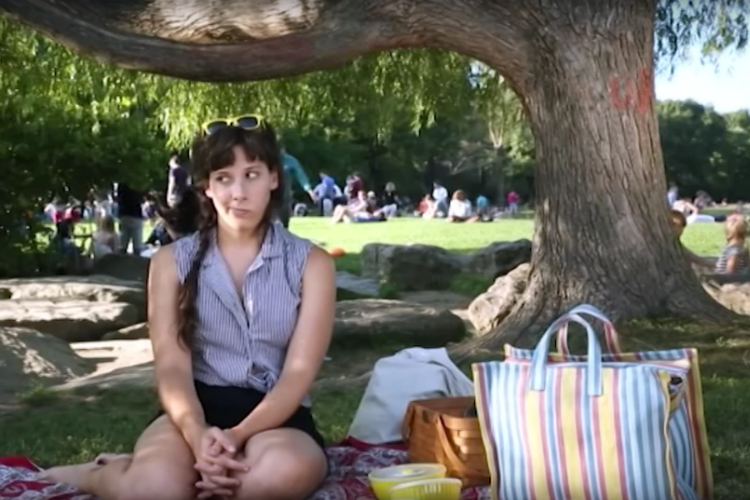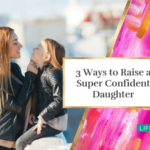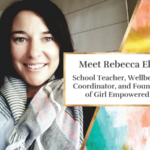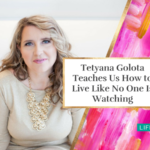
Recently I gave my first acceptance speech at a film festival. I was succinct, heartfelt, and authentic to myself. Afterward I was congratulated by several people at the event and told how “cute” I was. If they read my withering look correctly, they would add “funny.”
Funny. The last time my goal was to be seen as cute was when I was six.
Here’s the honest truth: I was born a feminist. It was never my decision. I was raised by a strong, career-orientated mother; I have a strong, razor sharp older sister; the foundation of my extended family was a strong grandmother. The idea that women have a voice and rights was inherit. I am a VERY lucky young woman.
And of course as I grew up I began to experience what it was to be a woman in the world. Everything from sweet-talking my way out of trouble, to my ideas being dismissed out of hand, to getting dicks whipped out in my face on the subway and being blamed for my boss squeezing my ass.
I consider my experience as a woman to be privileged. And for the most part it has never hindered me, so for a long time I never had to examine how being a woman affected my life or how I was seen in the world as a woman.
But recently I made a web series with a friend about two female friends – BE Bettina & Elaine. It was inspired by our friendship and the nice, supportive, authentic women that we surround ourselves with. We hadn’t seen so many women like us or our friends on TV, film, or in theater, so we joined forces with another hardworkin’ creative gal to celebrate women and their friendships and made a thing.
Suddenly we found ourselves representing What It Means To Be A Woman. And suddenly we felt like we had something to say about being a woman. My version of passive feminism bristled into very active porcupine mode. Through the act of creating and putting our work out into the world, I was forced to analyze what kind of woman I am and how much I truly care about women’s stories.
So as a young woman, making a web series about women, with women collaborators, what have I learned about representing women to the world?
- The fact that women have to continually fight media stereotypes, has created yet another stereotype to fit into
Much smarter people–women and men–had said this about women in media, especially women on TV: an on-screen female character must fit into a predefined mold. Men have historically defined this mold, and women are and have been working hard to break out of it for many decades. But as with many hard-fought battles, I think this struggle has created yet another mold that we must fit into with every on-screen character. To quote Mark Ruffolo (the current white male spokesmen for Feminism) “…the guys can do anything, they can have love affairs, they can be weak or strong and nobody raises an eyebrow. But when we do that with a woman, because there are so few storylines for women, we become hyper-critical of every single move that we make because there’s not much else to compare it to.” Now granted Mark was responding to criticism on how the female superhero Black Widow was represented, but I think what he says rings true for all women roles. There are so few parts for women that we have become hyper sensitive; almost to the point that if the woman isn’t perfect in every way with the perfect flaw and the perfect strength to counter-balance, we cry sexism. It’s as if by demanding so much of every female character out there, we have created just another stereotypical female character.
- Ordinary women are still uncommon
We are continually opening up the space in which women are allowed to play on-screen and in theater. For instance now with Broad City, women can be that much bolder in their humor. But what about the ordinary woman? A woman who is truly human in all her weaknesses, strengths, and inconsistencies? A woman who isn’t necessarily funny, sexy, or powerful? Men can be very ordinary in the media—they don’t need to be extremely handsome or fit, nor do they need to be written as successful or particularly powerful. They don’t even need to be particularly funny. Men have their Seth Rogans and Zach Braffs. Women do not. When we tried to put our ordinary selves in BE Bettina & Elaine with all our very human inconsistencies, it was sometimes perceived as inconstant character development or inconclusive story lines.
- Apparently positive female friendship equals “cute” and “sweet”
As Bettina and Elaine we have received a ton of feedback about looking very young, very cute, and very sweet. “Oh. That’s so cute with a capital Q!” Name a bro-mance or buddy comedy that you have heard described as cute. Someday when I have a ton of money I want to make this series with men as the friends. Would you describe two men using the bathroom together as cute or two men stopping to talk on the street as cute? So why when women are shown in those circumstances is it cute? And why does being called cute seem to stop us from being anything else?
4. It takes a grown person, especially a grown woman, to be brave enough to depend on another.
“It would be nice to see (Bettina and Elaine) grow up and not depend so much on each other,” was another piece of feedback we received after Season 1. And yet, only as I truly mature as an adult, have I actually been able to trust someone enough to depend on them and be depended on myself. There is nothing more adult than a relationship where two people feel the freedom and trust to truly depend on each other; where they choose honesty and communication over passiveness and cynicism.
- Humorous mistakes and busy lives don’t make women “hot-messes.”
Yeah….no. I work sixteen-hour days. I have two day jobs – one office, one teaching— I produce and create a show and I audition and perform in other shows. I have friends, family, and am in a relationship. Sometimes I sleep through my alarm. I am not just out of college and since I pay every bill and expense that happens in my life, I am would say I am independent adult with responsibilities. And yes, sometimes I am late for yoga. Life is a ridiculous race/ride/walk/trip. If you are honest with yourself, and your shortcomings, the comedy is right there, and you can still be a hard-working, career-ambitious young lady without being a “hot mess”.
- Sex doesn’t have to be the point of the story
Maybe we should have handled this better but the thing about being a grown woman is that you talk about sex. It isn’t an event because it’s just part of life. In this context, the funny or interesting moment doesn’t come from the sex part of the talk — because “gasp” that’s kind of the norm – it comes out of the dynamics of the friendship. I saw a great quote recently, “Friends talk about sex. Best friends talk about poop.”
- It’s the women that get it.
To be honest I was pleasantly surprised with how positively men responded and thought our show was funny. But it was women that would come up to us and say that they got it with a twinkle in their eye that said, “I know that friend. I just passed toilet paper to that friend under the bathroom stall.” They responded to the basic stuff of reality; that Bettina and Elaine were like themselves; that they never had any time; that they made their own lunch. But most importantly that they were kind and supportive super heroes to each other—“just recognizable women I know, and they forgive each other for it.”
- I care about women.
I believe in the friendships that we have with each other. And as an actress and creator of a new series, I care about how women are represented on screen. I care that they have to fit into predefined molds. And I care that when I show my heart through my stories or even a speech, I am dismissed as cute.
- It takes a special woman
Making anything as an ensemble is challenging. Starting as friends and becoming business and creative partners is even harder. It’s like growing up with someone in fast-forward. It takes patience and willingness to realize that while the work may change the friendship, the friendship created the work and one wouldn’t have happened without the other. If you want to test a friendship, go into business together. Is it harder when it’s all women? I don’t know. I’ve always been a woman, and I’ve always leaned on my women friends. We have always had each other’s back. It’s a myth to say otherwise and together we are unbeatable.

Calaine Schafer is the co-creator of BE Bettina and Elaine which is currently fundraising for its Second Season and set to shoot in September 2015. Fun Fact about Calaine? She grew up in 6 different cities, 4 different states, and 2 different countries.
Connect with Calaine… www.betheseries.com, Twitter, www.calaineschafer.com,Twitter




Be the first to comment